How Biogas Transforms Lives and Empowers Women in Rural Kenya to Combat Climate Change
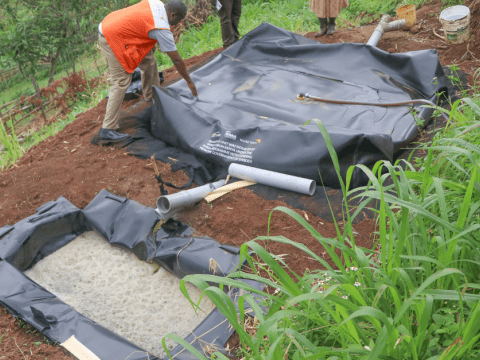
On a hot afternoon in Marich, West Pokot County, about 480 km from Kenya’s capital city, Nairobi, Zeddy joyfully cooks lunch for her family using biogas. This biogas system, provided by World Vision Kenya through the Government of Sweden-funded Integrated Management of Natural Resources for Resilience in Arid and Semi-Arid Lands (IMARA) programme, allows her to prepare meals on time and save money for other family needs.
“Cooking was difficult before the IMARA Program. I spent around 800 Kshs weekly on firewood and around 3,000 Kshs on charcoal, which was never enough for our cooking needs. Now that I have the biogas system, I can use that money for my children's school fees," Zeddy says.
Traditionally, women and girls in most communities are responsible for collecting firewood and cooking. Zeddy recalls their dangers and frustrations in isolated forest areas as they collected firewood. “We used to walk for over 4 kilometers to collect firewood in dangerous forests and often could not find any, especially during the rainy season. We faced the risk of snake attacks, and our girls risked being attacked and sexually abused by strangers, leading to the unfortunate events of increased teenage pregnancies and school dropouts.”
Due to the severe and prolonged drought in West Pokot County, many pastoralists turned to charcoal burning and logging to make a living after losing their livestock. Zeddy knew the health and environmental impacts of using firewood and charcoal. However, like many women, she had no other choice.
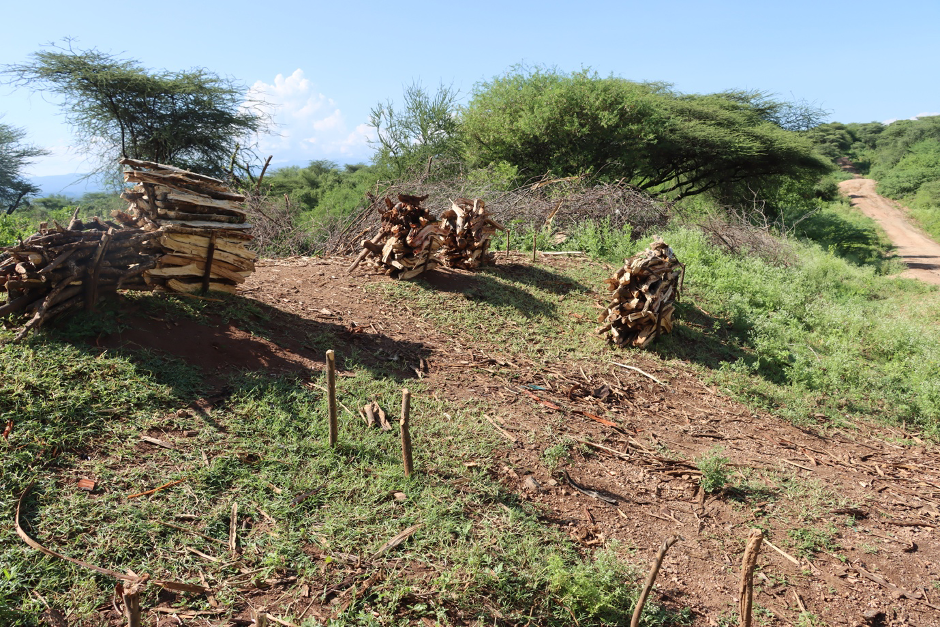
World Vision intervened through the IMARA program, training and supplying biogas systems to 40 households in West Pokot and Elgeyo Marakwet Counties. This enabled them to access clean, renewable energy. Zeddy, one of the participants, confirms that biogas “has freed up time that we can now spend on other productive activities.”
By introducing biogas, World Vision is helping communities engaged in cattle rearing to replace firewood and charcoal with this sustainable energy source. Biogas is renewable, environmentally friendly, and provides a cleaner, cost-effective, and more sustainable energy option for rural communities.
“Inhaling smoke while cooking using firewood and charcoal affected my health and that of my children, causing us respiratory illnesses. I spent a lot of money on medication, making it challenging to pay school fees for my children. This is now a thing of the past thanks to biogas,” shares Zeddy Chepkiyach, a mother of five.
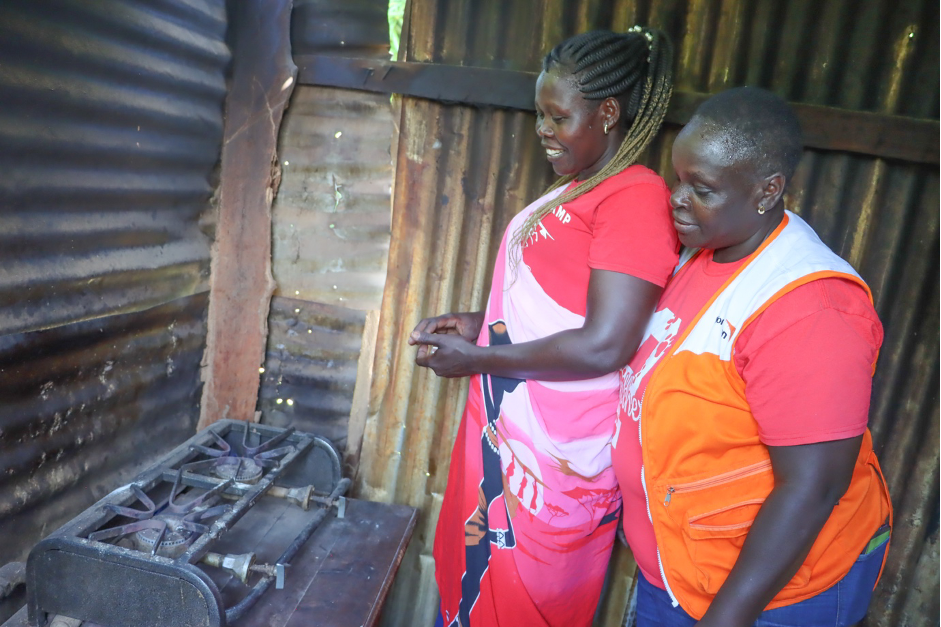
Damaris Mwangi, a Natural Resource Management Specialist at World Vision Kenya, explains that “Farmers with cows producing methane, a potent greenhouse gas, can now use this gas for cooking. This increases agricultural productivity and food security, providing income for rural households.”
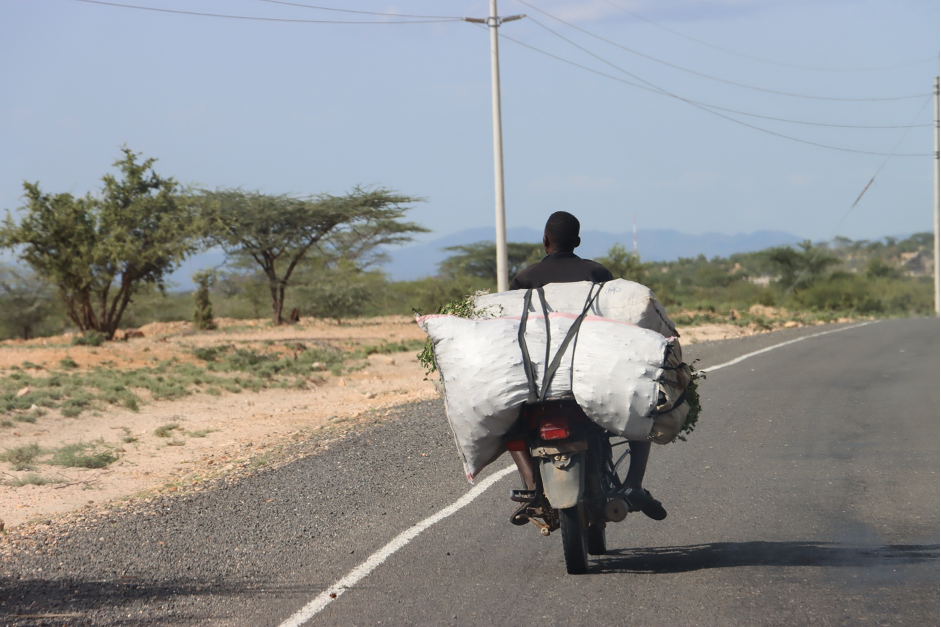
Biogas can reduce deforestation and soil erosion, which often leads to pollution and biodiversity loss. “We aim to reduce communities' reliance on fossil fuels and decrease the amount of carbon dioxide and other greenhouse gases released into the atmosphere. Biogas also reduces indoor pollution and respiratory diseases, producing less smoke than traditional cooking methods like charcoal and firewood,” explains Moses Kiptugen, IMARA Programme Manager. "Instead of burning cattle dung and crop residue, we are educating communities to convert them into energy for biogas digesters, providing homes with a cleaner energy source," he adds.
The IMARA program has trained women on using and maintaining biogas systems and educated them on the importance of tree planting and environmental protection to address climate change. “I wish more women, especially in rural areas, could receive this training and support for biogas. I can easily cook today because this technology saves time and eliminates smoke in my kitchen,” says Zeddy.
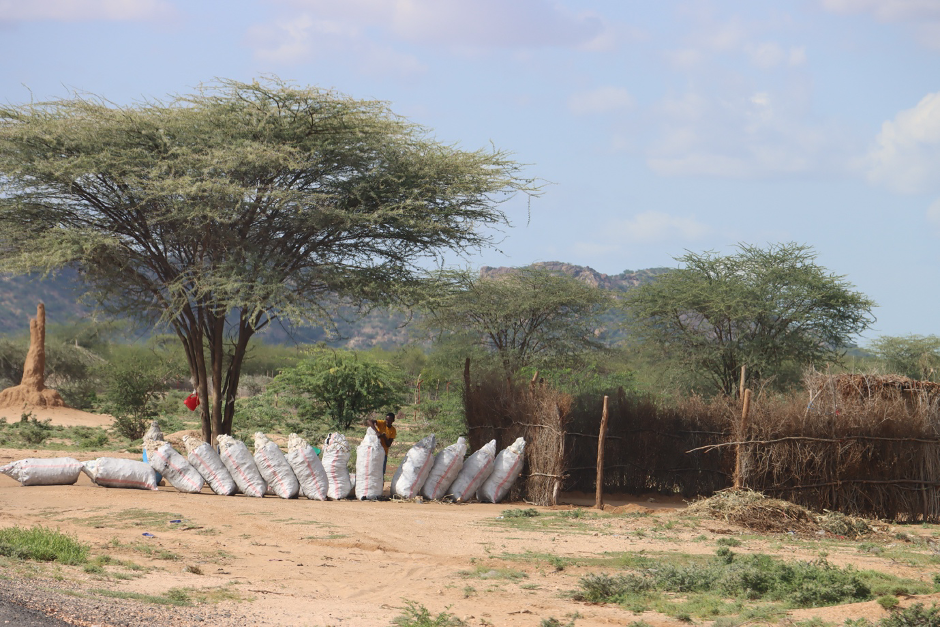
A woman packaging charcoal for sale. The charcoal industry threatens Kenya's forests, leading to a loss of biodiversity and contributing to climate change. ©World Vision Photo/Felix Pilipili
Biogas is a crucial tool in the fight against climate change, offering a sustainable alternative to fossil fuels and providing a cleaner energy source. Beyond environmental benefits and reducing reliance on fossil fuels, biogas helps reduce the amount of organic waste in landfills, cutting greenhouse gas emissions. Additionally, biogas helps Kenya meet its Nationally Determined Contributions (NDCs) under the Paris Agreement, aiming to reduce greenhouse gas emissions by 32% by 2030.
By Felix Pilipili, Communications Specialist, World Vision Kenya